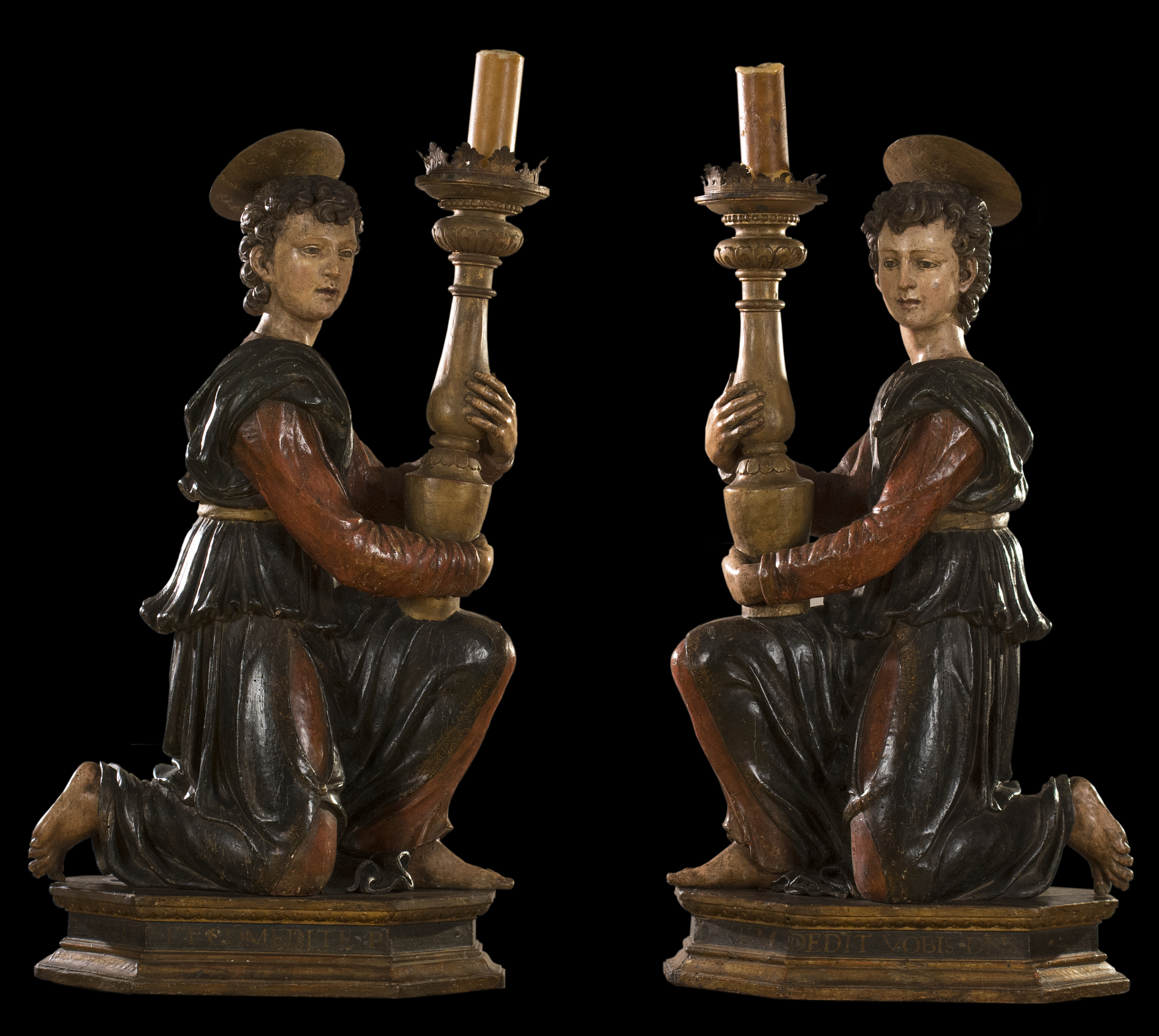Angel with Candlestick (pair)
Polychrome and parcel-gilt
Unknown
Florentine, c. late 15th century
Since paintings in an exhibit often take “center stage,” ecclesiastical pieces like these Angels with Candlestick can be overlooked by museum viewers. During the Renaissance, however, a polychrome sculptural grouping would often be the centerpiece of an altar’s decorative scheme while the painted narrative scenes or figures functioned as the “wings” of the altar. Although by the end of the sixteenth century, paintings became the central focus of Italian altarpieces, while sculpture continued to be used extensively in other countries like Spain.
The term polychrome (meaning “many colored”) refers to the application of colored materials to sculpture in order to present a more life-like quality. This technique dates back to the Greeks and Romans and was particularly popular during the Renaissance. Because these pigments fade over time such coloring is rarely discernable today. The good condition of these statues is due to the porous wood used which retains color well.
We know that the figures shown here were meant to be angels from the metal pins that remain on the back of each figure—a clear indication of the wings’ placement. Sadly, it is not uncommon for such appendages to be broken off or lost over centuries of movement from place to place. Fortunately, the carved wooden haloes have remained intact, as has the original base with its Latin inscriptions.
Since several of the words are Latin abbreviations, the precise translation of the inscriptions is unclear. However, a loose reading would be:
OVEM DEDIT VOBIS DNS ADVES CENTVIM
Dedicated to the Lord’s Advent
VENITE ET COMEDITE PANEM
Come and eat bread
ANGE ORVM
Angels
Donnalynn Hess, Director of Education
Published in 2018
